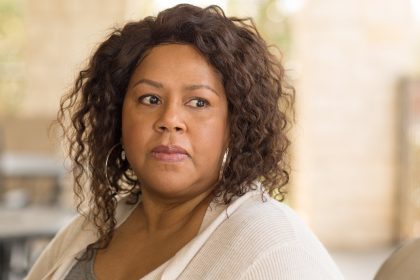Discussions about sexual communication represent a nuanced landscape of human connection, where personal boundaries, comfort levels, and individual experiences intersect. From the boldly outspoken to the deeply reserved, each person approaches intimate conversations with a unique perspective that reflects their personal journey and emotional landscape.
The Psychological Significance of Sexual Communication
Research in relational communication highlights the profound impact of open discussions about sexuality. These conversations serve as more than mere gossip—they are powerful tools for building trust, normalizing experiences, and creating supportive social networks.
Navigating Complex Emotional Territories
Sexual conversations are not one-size-fits-all experiences. Multiple factors influence an individual’s comfort and approach to sharing intimate details:
Childhood Influences
Early experiences and family dynamics play a crucial role in shaping sexual communication styles. Individuals from more conservative backgrounds may approach these discussions with heightened caution, while those from more open environments might find sharing more natural.
Relationship Dynamics
Relationship status significantly impacts sexual discourse. Single individuals might approach conversations differently from those in committed partnerships, each bringing unique perspectives and potential vulnerabilities to the dialogue.
Psychological Considerations
Personality Spectrum
Communication styles vary widely across personality types:
- Extroverts tend to share more openly
- Introverts may prefer more measured, selective sharing
- Analytical personalities might approach discussions more intellectually
- Emotionally intuitive individuals often create safe spaces for deeper conversations
Establishing Healthy Communication Boundaries
Strategic Approach to Intimate Discussions
Successful conversations require careful navigation:
1. Intent Awareness
- Understand your motivation for sharing
- Recognize the difference between seeking support and oversharing
- Evaluate the potential impact of your disclosure
2. Friend Selection
- Choose confidants who demonstrate empathy
- Identify friends with similar communication comfort levels
- Recognize not everyone is prepared for intimate discussions
3. Consent and Respect
- Always seek implicit or explicit permission before diving into personal stories
- Be prepared to pivot if someone seems uncomfortable
- Create a judgment-free environment
Psychological Benefits of Open Communication
Research suggests that open conversations about sexuality can foster a range of psychological benefits:
- Reduce feelings of isolation: Honest discussions about sexuality can help individuals feel less alone by connecting them with others who may have similar experiences or questions.
- Normalize diverse experiences: Sharing personal stories and listening to others can broaden one’s perspective and make a variety of experiences feel accepted and valid.
- Build deeper interpersonal connections: When people feel safe to discuss intimate aspects of their lives, they often form more meaningful bonds, rooted in trust and empathy.
- Challenge existing social stigmas: Open communication can break down harmful stereotypes and prejudices, creating a more inclusive and accepting environment.
- Promote emotional intelligence: Engaging in vulnerable conversations can build self-awareness, empathy, and better understanding of both one’s own emotions and those of others.
Cultural and Social Implications
Sexual conversations contribute to a larger cultural shift toward open dialogue, which is essential for social progress:
- Breaking down communication barriers: Encouraging candid conversations can help reduce discomfort around discussing sexuality, making open dialogue more commonplace.
- Challenging outdated sexual narratives: New conversations can replace traditional or limiting views on sexuality with inclusive and modern perspectives.
- Promoting understanding and empathy: By learning about others’ experiences, individuals develop a greater sense of empathy, fostering societal cohesion.
- Celebrating individual experiences: Publicly recognizing and accepting diverse sexual identities and experiences validates them, fostering inclusivity and support.
Practical Implementation
Creating safe spaces for open communication requires mindful, supportive strategies:
- Practice active listening: Focusing on understanding rather than responding makes others feel heard and valued.
- Avoid judgmental language: Choosing words carefully helps create a welcoming environment where individuals feel safe expressing themselves.
- Maintain confidentiality: Respecting privacy is essential for trust, ensuring that people can share openly without fear.
- Demonstrate emotional intelligence: Being mindful of one’s own emotions and reactions helps keep the conversation supportive and constructive.
- Recognize individual boundaries: Acknowledging and respecting personal limits is key to creating a space that feels safe for everyone involved.
Technological Considerations
Digital platforms have revolutionized how people engage in open conversations about sexuality, providing resources and support systems:
- Anonymous support communities: Online forums and social media groups allow individuals to seek advice or share experiences without revealing their identities.
- Broader access to sexual health information: Websites, apps, and virtual support groups offer convenient, private access to reliable information on sexual health.
- Platforms for normalized discussions: Social media and other digital spaces encourage discussions that bring varied experiences and identities into the mainstream.
- Increased visibility for diverse experiences: Technology amplifies underrepresented voices, fostering a culture of acceptance and understanding by showcasing a broad spectrum of perspectives.
Conclusion
Sexual communication represents a complex, nuanced art form. Success lies not in complete disclosure but in creating supportive, respectful environments that honor individual experiences and boundaries.
The journey of sexual discourse is deeply personal, requiring empathy, understanding, and a commitment to mutual respect.
















